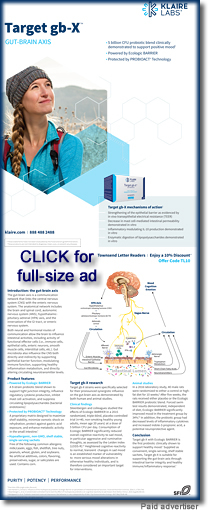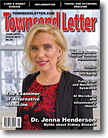Page 1, 2, 3
Expecting Too Much from Diet Alone
Diseases of the kidney such as IgA nephropathy, FSGS or polycystic kidneys are complex and multifactorial. In practice the author uses a combination of supplements, dietary strategies, and lifestyle changes (mild exercise, hydrotherapy and addressing sleep habits) to address chronic kidney disease. This is especially true with advanced kidney disease where decreased kidney filtration can impact a broad range of issues from cardiovascular health to bone density. Yet a surprising number of kidney patients want to address their issues with diet alone.
Many patients are under the impression that if only they can eliminate the offending food that's triggering their inflammation, the kidney problem will resolve. This is usually perceived as getting to the root of the problem, but in practice after a long series of tests and elimination diets, not much shifts. The etiology of many renal conditions may involve a genetic predisposition but many times the condition is considered idiopathic, probably involving a variety of factors. And while many patients are busy sorting out the fine details of their diet, their kidneys are continuing to break down.
 Unrealistic Expectations of the Kidney's Capacity to Heal Unrealistic Expectations of the Kidney's Capacity to Heal
Patients looking to alternative medicine sometimes believe that the body has an unlimited ability to regenerate. While some tissues of the body do have a great regenerative potential, the kidneys are not one of them. TCM acknowledges this as a weakening of the Jing with advancing years. Even without kidney disease, our nephrons are breaking down with the passing years, starting in our twenties.
Young children may outgrow conditions such as minimal change nephrotic syndrome. The kidneys are generally proportionate in size to one's fist, and as children grow their kidneys grow. New kidney cells are still forming as there is active mitosis in a growing kidney. Once the individual is full grown, there is a limited capacity for the kidneys to regenerate. For adult kidney disease, we are maintaining the kidneys and preventing further decline.
Aggressive Liver Detox
The liver and the kidneys are both organs of elimination, and there are some conditions that effect both such as heptorenal syndrome and cystic kidneys that also involve liver cysts. Many traditional liver herbs are also beneficial to the kidneys. Silymarin can protect the kidneys from toxicity,17 and curcumin can support kidney filtration.18 Berberine can also help the liver and protect the kidneys.19 However, sometime patients and practitioners have unrealistic expectations of healing the kidney by correcting the liver. Aggressive liver detoxification will not be helpful if it pushes too much too fast.
Heavy metals, environmental toxins, and occupational exposure can tax the body's detox systems; but if the kidneys are struggling to eliminate basic metabolic wastes like creatinine and BUN, it is important not to push too hard. The liver processes toxins through phase I and phase II detoxification and after these lipid soluble toxins become water soluble, they are handled by the kidneys. Often kidney patients are eager to detoxify, and they find that mainstream nephrology doesn't even acknowledge their concerns. However, liver detox should be a gradual process for kidney patients.
Aggressive Use of Colonics
When a major organ of elimination is taxed, it makes sense to support the body's other channels of elimination. Constipation is certainly a problem to be avoided, but aggressive use of colonics may be more fluid than the patient can handle. It could also make it difficult to manage electrolytes with a dramatic sudden shift. Some patients are given prescription laxatives like Kionex to help the body eliminate potassium. Patients could also use a distilled water enema to lower potassium, but the volume of fluid with a colonic can be problematic.
Avoiding Dialysis at All Costs
Traditional Chinese medicine states that fear is detrimental to the kidneys; and for most patients, there are few things more fear provoking than the thought of dialysis. Like most fears looming large in one's mind, the thought is often worse than the reality. The author writes this having experienced fourteen years of hemodialysis.
Avoiding dialysis can be a good motivation for change, and natural therapies can be an important part of slowing the progression of chronic kidney disease. But when the kidney filtration is not strong enough to sustain life, it's time to be realistic about the patient's options. Some patients fear the machine more than the damage of kidney failure itself and need to understand that they will be better off having toxins mechanically removed from the body. The author has seen patients with creatinine as high as 18, holding out for a transplant, unwilling to face the dialysis machine. These patients need to understand just how dangerous it is to avoid dialysis at any cost.
Working with a TCM practitioner, the author was urged to watch comedy on a regular basis. Fear is the body's fight or flight responses, while laughter is the opposite state, breaking up the internal tension of fear and giving the body the message, 'danger averted'. Interestingly, a study on survival rates for dialysis patients found scoring high on sense of humor in self-assessment was a huge predictor of long term survival.20 Holistic practitioners may have their own strong feelings against dialysis, but it will ultimately be for the patient's best interest to maintain a positive attitude.
A holistic approach to kidney disease can dramatically improve a patient's overall health and well-being, but patients and practitioners alike often hold notions that are at odds with the reality of their situation. With a balanced approach, it's possible to address the concerns of chronic kidney disease and avoid the common pitfalls. A better understanding of nephrology will allow natural medicine to offer more targeted therapies.
Page 1, 2, 3
References .pdf
Dr. Jenna Henderson's practice, Holistic Kidney, is dedicated to the unique needs of renal patients with an international clientele and patients on six continents. A kidney patient herself for over 25 years, she has experienced all stages of kidney disease firsthand. She is a graduate of the University of Bridgeport. Dr. Henderson has had several articles on kidney health published in Townsend Letter, Natural Medicine Journal, and NDNR. She has lectured extensively across the US to naturopathic doctors, kidney patients and kidney professionals, and co-hosted the radio show Improve Your Kidney Health.
Dr. Henderson seeks to bridge the gap between mainstream nephrology and natural medicine. In her practice she helps patients sort through often conflicting information to understand what is appropriate for their individual needs and stage of kidney function. She is often able to help patients delay the need for dialysis. For those already in kidney failure, she helps patients find optimal wellness with dialysis or a transplant. She holds a naturopathic license in the state of CT and has recently relocated to New Paltz, NY. For more information www.holistic-kidney.com.
|
![]()
![]()
![]()
![]()






